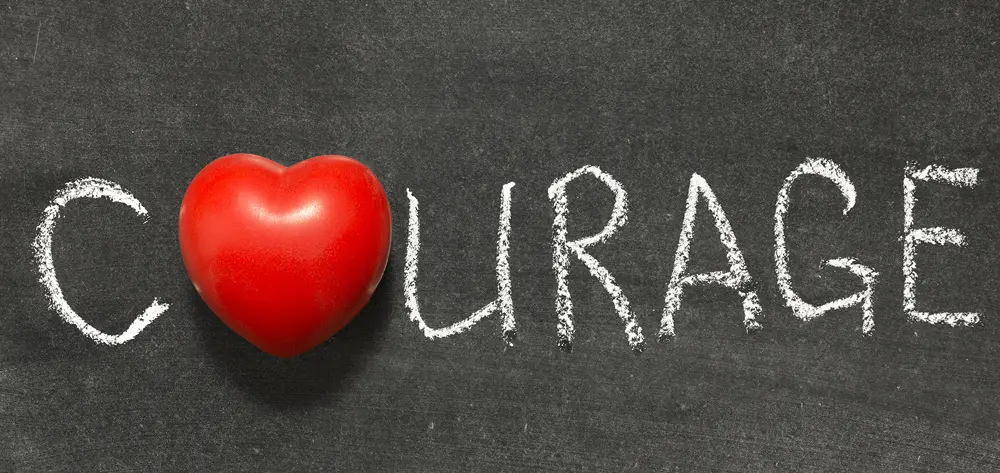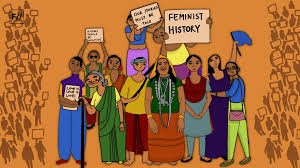Tariq Mahmood Awan
One may not be a dignified human if one does not harbour courage. Courage is the ability to control fear and to be willing to deal with something perilous, scary and risky. It is a common theme involving characters facing and overcoming challenges, dangers, or conflicts. Courage can be portrayed as a heroic virtue, a moral duty, or a personal struggle. For example, in the epic poem Beowulf, the protagonist Beowulf shows courage by fighting against monstrous foes, such as Grendel, Grendel’s mother, and the dragon. His courage is motivated by his loyalty to his king, his honour as a warrior, and his desire for fame and glory.
In contrast, in the novel To Kill a Mockingbird by Harper Lee, the character Atticus Finch shows courage by defending a black man accused of raping a white woman in a racist society. His courage is driven by his sense of justice, compassion for the oppressed, and integrity as a lawyer. Another example is the memoir I Am Malala by Malala Yousafzai, who shows courage by speaking out for girls’ education in Pakistan under the threat of the Taliban. Her faith inspires Her Courage, passion for learning, and vision for a better world. Hence, multiple instincts, emotions and values determine the courage of individuals.
Please, subscribe to the website of republicpolicy.com
Courage can also be expressed in euphemistic terms, that is, using mild or indirect words to replace harsh or unpleasant ones. Euphemisms can serve various purposes, such as avoiding offence, showing respect, or hiding the truth. For example, in military contexts, courage can be euphemized as “valour”, “bravery”, “gallantry”, or “heroism”. These words can be used to praise or honour soldiers who perform acts of courage in war. However, they can also be used to glorify or justify violence and aggression. Another example is in medical contexts, where courage can be euphemized as “fighting”, “battling”, or “surviving”. These words can be used to encourage or support patients who face life-threatening illnesses or injuries. However, they can also be used to deny or minimize the reality or severity of their conditions.
Courage can also be associated with the sublime, that is, the quality or state of being sublime. The sublime is a term that refers to something that is awe-inspiring, overwhelming, or transcendent. The sublime can be experienced in nature, art, religion, or philosophy. For example, in nature, one can experience the sublime by witnessing phenomena that are vast, powerful, or mysterious, such as mountains, storms, or stars. These phenomena can evoke feelings of fear and wonder at the same time. Similarly, in art, one can experience the sublime by encountering works that are captivating, expressive, or original, such as paintings, sculptures, or music. These works can elicit emotions of admiration and pleasure at the same time. Likewise, in religion or philosophy, one can experience the sublime by contemplating concepts that are profound, universal, or infinite, such as God, truth, or love. These concepts can inspire thoughts of reverence and awe at the same time.
Hence, courage is a concept that can be examined from different perspectives and dimensions. Courage can be understood and expressed in literary terms as a theme that involves characters facing and overcoming challenges, in euphemistic terms as a word that replaces harsh or unpleasant ones, and in sublime terms as a quality that is associated with awe-inspiring phenomena. Each of these aspects reveals something about the nature and meaning of courage.
Please, subscribe to the magazines of republicpolicy.com
Why is courage significant for life? Courage is a vital quality for a dignified person in all aspects of life. Courage enables one to face and overcome fear, pursue a higher purpose, and act with integrity and authenticity. It helps one to cope with difficult emotions, such as grief, anger, or anxiety. One can heal and grow from emotional challenges by acknowledging and expressing one’s feelings rather than suppressing or avoiding them. Courage also allows one to be vulnerable and honest with oneself and others, fostering deeper connections and trust. For example, a person who has the courage to come out as a villain to their family and friends shows bravery and self-respect, even in the face of potential rejection or discrimination.
Courage empowers one to embrace and celebrate one’s cultural identity, as well as respect and appreciate the diversity of others. By being proud of one’s heritage, language, values, and traditions, one can affirm one’s sense of belonging and contribution to society. Courage enables one to challenge and resist cultural stereotypes, prejudices, and oppression and advocate for social justice and inclusion. For example, a civil servant who speaks out against injustice in their civil service displays courage and a commitment to justice. Courage enhances one’s leadership and management skills, as well as one’s professional development and performance. By taking initiative, responsibility, and risks, one can demonstrate competence and confidence in one’s abilities and goals.
Courage also helps one to deal with uncertainty, complexity, and change in the workplace and to adapt and innovate accordingly. Moreover, courage inspires one to uphold ethical standards and principles and to speak up against corruption or harassment. For example, a whistleblower who exposes wrongdoing in their organization shows courage and integrity. Likewise, courage strengthens one’s civic engagement and participation in the public sphere. By being informed, involved, and active in the issues that affect one’s community and country, one can exercise one’s rights and duties as a citizen. Courage also motivates one to voice one’s opinions and perspectives, as well as listen to and learn from others. Furthermore, courage inspires one to serve the common good and the greater good, even at personal cost or sacrifice.
Please, subscribe to the YouTube channel of republicpolicy.com
https://www.youtube.com/@TheRepublicPolicy
Lastly, courage is paramount for a dignified person in all aspects of life. It helps one to overcome fear, pursue a higher purpose, act with integrity and authenticity, cope with emotions, embrace diversity, lead effectively, engage civically, and serve altruistically. Then, it is a pure emotion. It does not require justifications and rationales. It can not be wrapped under wisdom, rationality, and discernment. Either you are courageous or not. Then, the wise men without bravery are the ultimate hypocrites. The most inspirational & celebrated human value is courage.
















